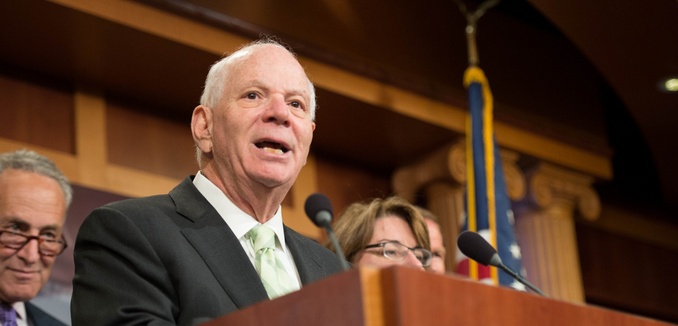A number of Democratic senators, including some who supported the nuclear deal with Iran, are calling for the release of documents related to the deal that have been stored in classified facilities despite not actually being classified.
The Daily Beast reported on Monday that the Obama administration placed the documents in Sensitive Compartmentalized Information Facilities (SCIFs), which are only accessible to members of Congress and staffers who have the proper security clearances. The documents reportedly contain details about exemptions from standard nuclear investigation procedures that Iran received, American promises regarding the opening-up of Iran’s economy, and details of a deal signed to release $1.7 billion to Iran in exchange for the release of American hostages.
It is believed that the incoming Trump administration will release the documents, a move supported by a number of prominent Republicans, including Senate Armed Services Committee chairman John McCain (R-Ariz.). The Weekly Standard reported Tuesday that Democrats have also stated their support for such a move.
“Unless there’s a damn good reason to keep them out of the public eye, turn them over,” Sen. Jon Tester (D-Mont.), who voted for the deal, told the Standard. “I’m more on the side of transparency than not, that is for sure. … But that’s a first blush, not really knowing what’s in them.”
“If [the documents are] unclassified, what are they doing in a SCIF?” asked Sen. Chris Coons (D-Del.), who also supported the deal. “The entire purpose of a SCIF is to be a place where you can read classified documents.”
Sen. Ben Cardin (D-Md.), the leading Democrat on the Senate Foreign Relations Committee, said he saw no reason why the documents shouldn’t be released. “There are sorts of information you want to protect, and then there are strategic issues that you have to deal with because there might be continued negotiations,” he said. “If it doesn’t fall in those two categories, I don’t think it should be a concern. Nothing that I’ve been engaged with, would I be terribly concerned that that was released.”
“They are unclassified. There should be transparency, and that transparency ultimately helps inform the public,” said Sen. Bob Menendez (D-N.J.), a leading Democratic opponent of the deal.
Numerous aspects of the nuclear deal have been surrounded by secrecy, a point highlighted last week by Sen. Gary Peters (D-Mich.), who criticized the International Atomic Energy Agency (IAEA) for the lack of details in its reports on Iran’s compliance with the deal. Peters’s concerns echoed statements made in recent weeks by former IAEA deputy director-general Olli Heinonen.
When the Associated Press revealed in August that the IAEA and Iran had reached a secret side agreement allowing the Islamic Republic to effectively self-inspect its Parchin military site, Heinonen wrote that the terms of the agreement were likely “departing significantly from well-established and proven safeguards practices.”
[Photo: Senate Democrats / Flickr ]




